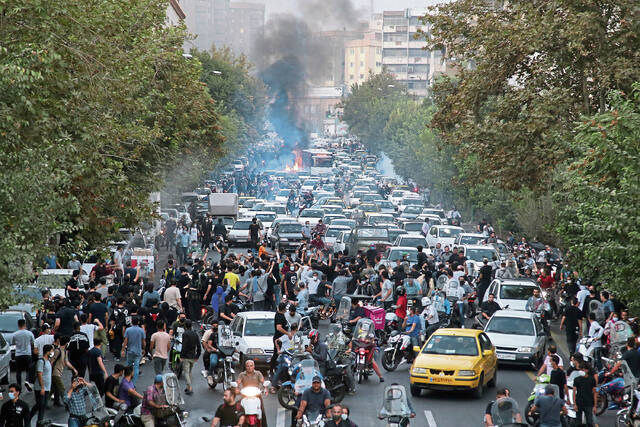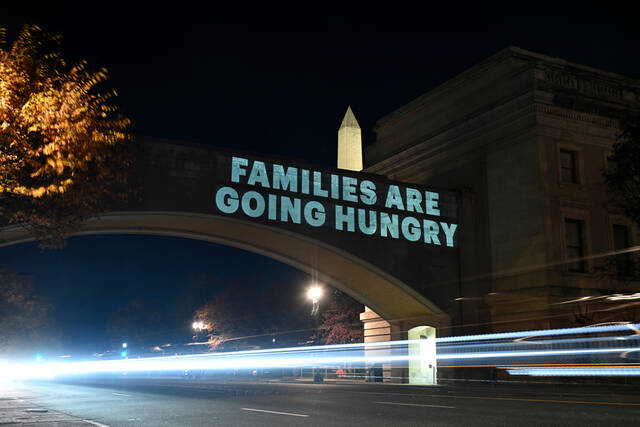“The world is going backwards. Women are whole human beings, but government is still trying to control us, even here in the U.S.,” according to Fayezeh Haji Hassan. The Pittsburgh lawyer was barely a teenager when her family fled Iran for Afghanistan to escape the political persecution of her activist father.
After 9/11, Afghanistan was no longer safe, and the family sought refuge in Pakistan. They stayed there until the Taliban were ousted from Afghanistan. They moved back, and Hassan worked with a human rights agency, which gave her the opportunity to attend college and law school in the United States.
The Hassan family’s odyssey is common in dangerous parts of the world. Seeking safety, families jump from the frying pan into fire after fire, staying in one place until another safer opportunity arises and leaving that one for yet another when it gets too hot. But the Hassan family’s roots are in Iran.
The Sept. 13 death of Mahsa Amini at the hands of Iran’s morality police struck home with Hassan. The 22-year-old Amini was visiting Tehran from Kurdistan when she was targeted because some of her hair was sticking out of her hijab, the traditional head covering worn by Muslim girls and women.
Witnesses say Amini’s hands and legs were beaten with a baton when she was arrested, and she was struck on the head at the police station, where she collapsed. After three days in a coma, she died. Women throughout Iran have taken to the streets, burning hijabs and cutting their hair. Many have been killed by the Iranian government forces that are trying to put down the protests.
“For the longest time, wearing the hijab seemed like no big deal, just another piece of clothing,” Hassan says. “Women worried about the economy and the threat of war. Like women everywhere, they worried about their families.
“But all these things — the bans on nail polish and colorful clothing and makeup and dancing — are more than an inconvenience. They’re all connected, and they’re all about controlling women’s bodies.”
Hassan says the morality police usually start by publicly scolding women who are spotted breaking the rules. Sometimes they are beaten, and often they are held at the police station until a family member brings them the “proper” clothing. Women who fight back are beaten and imprisoned.
“It is amazing what Iranian women are doing now,” Hassan says. “There is not an individual woman leader of these protests. All women are leading — together — as one.
“Even in Russia and China, women are no longer putting up with repression,” Hassan continues, calling what is happening in Iran part of a bigger political trend.
Demonstrations in support of the Iranian protestors have taken place in Canada, Germany, Greece, Italy, Lebanon, Spain and Turkey. And #MahsaAmini quickly became a worldwide symbol on social media for justice and change.
“And in the United States, where some politicians are trying to control women’s health care and reproductive rights — even making women and their physicians criminals — women are fighting back,” Hassan says.
“We hope that what is happening in Iran will influence women here, and that they will see how important it is to get out and vote in the coming election.”








